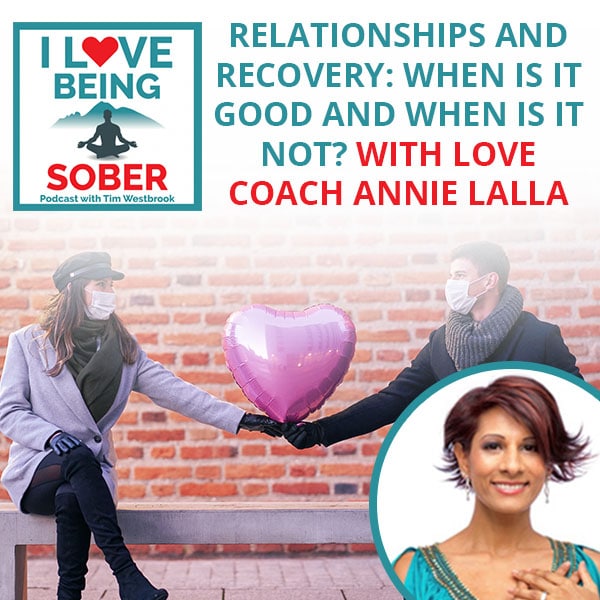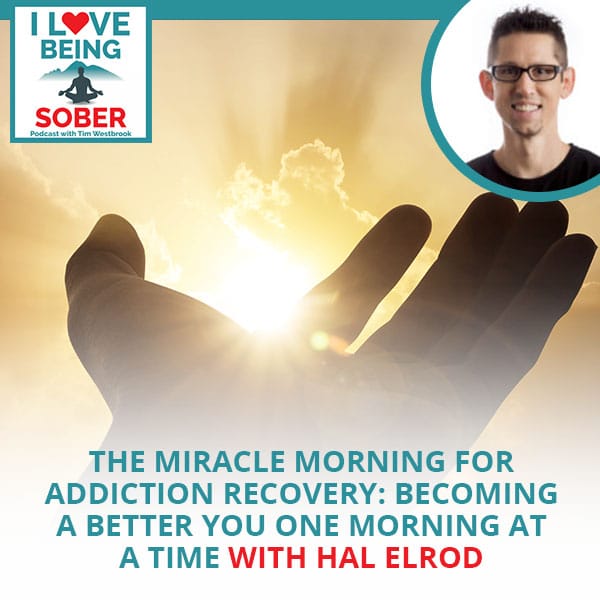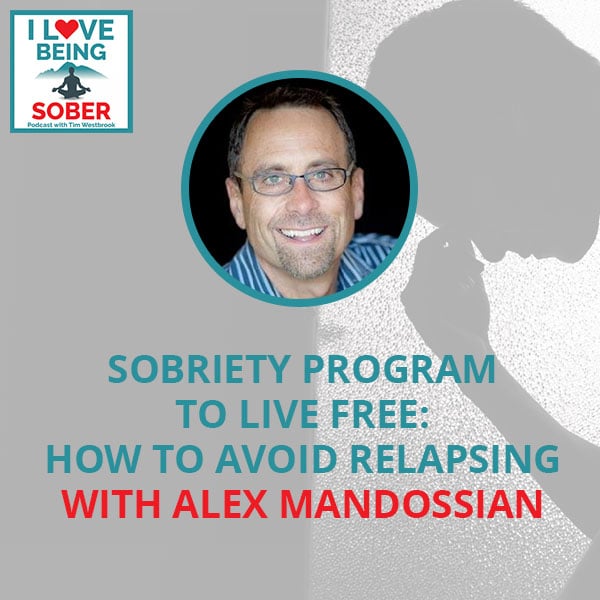Tim Westbrook and TJ Woodward dive into the power of Conscious Recovery and explore the root causes of addiction. Learn about TJ’s journey in recovery and the powerful spiritual principles he uses to help people change their false beliefs and…
—
Tim Westbrook and TJ Woodward dive into the power of Conscious Recovery and explore the root causes of addiction. Learn about TJ’s journey in recovery and the powerful spiritual principles he uses to help people change their false beliefs and embrace their infinite potential, instead of viewing themselves as broken people that need to be “fixed”.
- Tim wouldn’t know what his life would look like in the midst of the pandemic if he weren’t clean and sober. Addiction, suicide, and mental illness is up by 600% and fewer people are coming into recovery.
- White collar workers are working from home while still continuing to drink, which means that they aren’t getting into the trouble they normally would and their addiction is getting worse without it being obvious.
- The impact of the shelter in place policies has created a secondary effect on people and we probably won’t know until this time next year what level the impact is.
- Being sober is the very foundation for the success that TJ Woodward has enjoyed in his life.
- Many people have asked TJ how he can know whether he still has a problem with addiction when he got sober at the age of 20. His answer is that he loves his life and being sober so much so having a drink wouldn’t enhance his life in any way so it’s not even a question for him.
- When your life is so good, it’s not worth the risk of having one drink and going down that path. As long as you continue being grateful and stay connected to other people in recovery, you will know that that life is not what you want.
- An extensive clinical study revealed that people who had higher levels of anxiety about Covid had higher levels of anxiety before Covid. We don’t change our habits based on what we don’t want, we change our habits based on what we do want. Recovery becomes about “what life do I want?”
- Whatever you put energy into grows, so if you put energy into what you don’t want, you’re putting it into the wrong place.
- TJ grew up in the 90’s and recalls coming into the world pretty happy, but that quickly changed into fear and wrongness which changed his worldview. He shut down at an early age, feeling damaged and broken until he discovered drugs and alcohol.
- One of the narratives that we hear in recovery is that someone has to hit bottom before embracing recovery. For TJ that meant feeling empty and grasping for something or someone just to feel better or feel less.
- At the age of 13,TJ started experimenting with drugs and alcohol, but he didn’t realize it was a problem until a couple years later. We don’t call drinking or using drugs an addiction as long as it’s working, we call it “fun.”
- There was no intervention for TJ. The last year of his addiction was particularly damaging internally and his sense of emptiness and disconnection pushed him further. Luckily for TJ, he had a sober friend who planted the seed in his mind that led him to his own recovery.
- Abusing drugs and alcohol isoften an attempt to fill a sense of emptiness, but it never works. For TJ, what he was really missing was a sense of spiritual wholeness.
- Relapse is often accepted as part of recovery. TJ was so disconnected that once he discovered recovery he was willing to do whatever it takes.
- At the time TJ got sober in 1986, the idea of treatment was becoming widespread for the first time. In the beginning, TJ didn’t know that he would be working to help others in recovery, he was in his late 30’s when he went back to school and focused on spiritual counselling, which he now brings to the people he helps.
- There was no classic addiction in TJ’s family. There is a common narrative that addiction is passed on and if the addiction isn’t present in your family, maybe you don’t actually have a problem. The issue is that addiction takes many forms and doesn’t always manifest as drug or alcohol abuse.
- TJ took on the generational trauma from his parents and internalized it.
- Most of the treatment in recovery focuses on symptoms and behaviors. Mental health and addiction were considered separate and unrelated. TJ came into the field with a spiritual approach of reconnecting people with their wholeness in the form of Conscious Recovery.
- One of the practices that has been very powerful for TJ is listening to his inner wisdom. The idea for writing his Conscious Recovery book came to TJ during meditation.
- TJ loves the 12-Step program but his path took him in a different direction. Conscious Recovery is not an alternative to the 12-Step program, it’s an additional tool in the toolbox. The 12 Steps are the foundation for the recovery of millions of people.
- Being with a community of supportive people that helps you connect with others as well as yourself is the goal, whatever form that happens to take.
- There are more opportunities now to connect in different ways than ever before.
- TJ’s life changed dramatically early on in recovery after meeting a particular woman who opened his eyes to the story of his recovery. Instead of trying to figure out what’s broken about someone, Conscious Recovery focuses on the infinite potential of what that person is capable of.
- Personality isn’t permanent, we are changing all the time and we can choose the language we use to describe ourselves and our future.
- The power of “I am…” is really important. Your “I am…” statements shape how you think of your identity and move you in ways that you may not realize. Recovery is about changing the narrative that you tell yourself.
- In the Western medical model, we look at symptoms and try to eliminate them. The issue is that the Western approach doesn’t always deal with the root cause. The issue with the DSM is that it often puts people into a category that may not be the right one. It’s not necessarily bad, but a diagnosis can sometimes keep people trapped in a belief about themself that is not necessarily permanent.
- The root causes of mental disorders are often some unexamined trauma, and just dealing with the symptoms is like putting a bandaid on a bleeding wound.
- If we only treat symptoms and behaviors, nothing really changes. The seeds you plant in your unconscious grow into fully formed beliefs. Healing your core false beliefs is the path you need to pursue.
- Your beliefs about yourself also determine who you attract into your life. If you believe you are unworthy, you will choose an unworthy life. You will choose relationships that confirm your core false belief.
- When TJ was five years old he decided he was stupid. The healing work involved going deep and embracing the emotions of the past and understanding how and where that seed was planted.
- It takes time to heal. Don’t rush the process but focus on dealing with the root cause as early on as possible. One of the things that treatment practitioners can do right now is start to recognize that they can address root causes much earlier.
- Conscious Recovery says underneath all your addictive behavior is a whole, imperfect person. The wisdom is within you. It’s not the counsellor, sponsor, or therapist’s job to fix you because you are not actually broken.
- The person who has relapsed multiple times is carrying a great deal of shame about themselves.
- If we start to explore anxiety as a strategy than a condition, we can start to explore what it’s managing.
- If you really want to be clean and sober, take the time to explore what is happening within you and think about what communities you want to connect with to accelerate your recovery.





